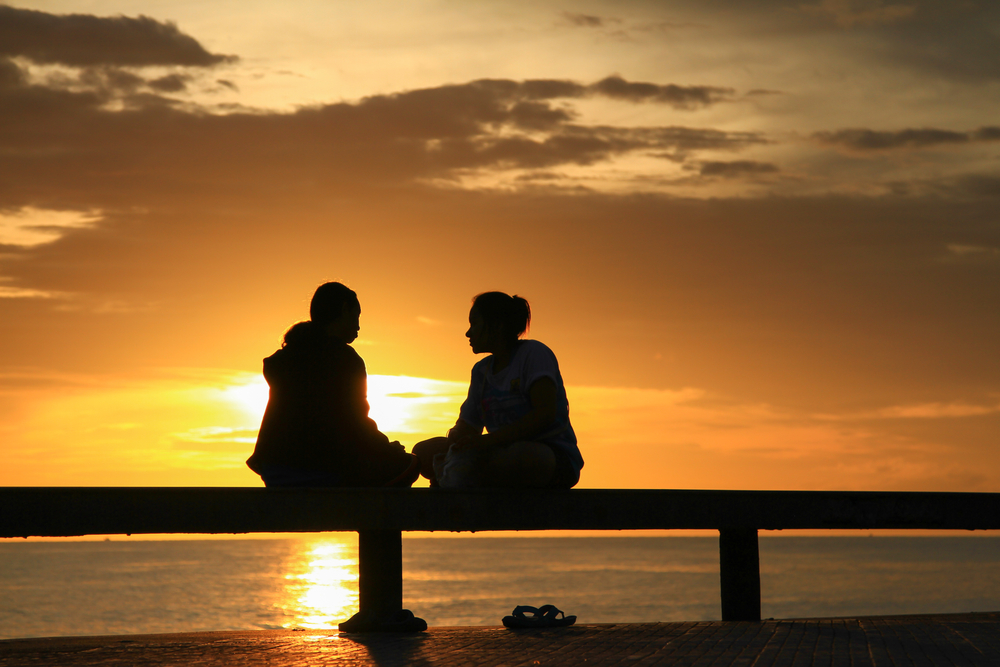Sarah’s favourite thing about her sister Jessica was her height. “At five foot eleven, no-one wanted to mess with her,” she says. “Even though she was younger, she always watched out for me. I felt more confident when I was with her.”
Four years ago, following a long battle with a severe prescription drug addiction, Jessica took her own life. She was one month shy of her 23rd birthday.
Videos by VICE
“I hate you and wish you were dead.” That was the last thing Sarah ever said to her sibling. Like most sisterly bonds, theirs could be turbulent, and the pain of this last exchange kept Sarah bound to her bed for months, guilt-ridden and depressed. Her own trauma was worsened by watching her parents fall apart—her father cried every morning, while her mother suffered from recurrent nightmares.
Sarah still finds it difficult returning to the family home, where Jessica’s belongings are scattered around. Sometimes the visualisation of her sister dying carousels around her head, over and over. “I’ve lost my past, my present and my future,” she says.
Dr Jan-Louise Godfrey, a psychologist with the Australian Psychological Society and expert in child bereavement, believes that disenfranchised grief—meaning grief that goes unacknowledged by society—can have huge mental health ramifications. This is especially the case for individuals dealing with the death of a sibling, because while there’s adequate support for the parents, little is known about this specific group.
Overall, there is a tendency for siblings to hide their grief in an attempt to minimise the trauma felt by their parents, Dr Godfrey says. This inability or reluctance to express themselves can stunt the mourning process itself, as the sibling left behind can “struggle to integrate” what has happened.
Bronwen Edwards, founder of suicide prevention group Roses in the Ocean, experienced this firsthand in 2008 when her 43-year-old brother took his life. “Sibling survivors get no support,” Edwards says. “We completely fall through the cracks. There are some bereavement support groups, like StandBy Response, which offer great support, but they aren’t everywhere.”
Without an outlet or structured support, the trauma experienced by the loss of a brother or sister can be exacerbated, with many sibling survivors report symptoms associated with anxiety, depression and disordered eating. Dr Godfrey says that while there may have already been underlying predispositions for these mental states, her research shows the trauma of losing a sibling correlates with higher rates overall.
This was the case for Kerri, who was 18 when her younger brother Joseph took his own life. Now 25, the design intern says she sidelined her grief by taking care of her father, who she worried might take his own life in the aftermath. While trying to battle her father’s declarations of “I can’t go on any longer,” and “I don’t want to eat,” Kerri’s own feelings of loss were suppressed, eventually manifesting as an eating disorder that saw her go from 90kg to 43kg.
“I ended up in the hospital dying from anorexia,” Kerri says. “They kept me in for two weeks on machines, then I moved to a residential home for two months of treatment.”
It wasn’t just Kerri’s attitude toward food that was turned upside down; the death of her brother inverted her family’s structure, too. Kerri essentially became a carer for her father in the absence of her mother, who felt a need to be out of the house and with friends in order to cope. Her dad, on the other hand, “had to be alone.”

Liz Adams, an Australian psychologist, recently completed a doctoral thesis on the impact of suicide on families, inspired by her 16-year-old son Peter who took his life in 2001. More than anyone, Adams understands how the vacuum created by suicide can affect family dynamics. “You can get a child that becomes the carer of the parent because the parent loses the plot and collapses,” she says. “The assumed attitude is that the child is resilient.”
Alternatively, the parent can become an overbearing caretaker. Or a statistic: a 2011 Swedish study of 11 million people found that “suicidal behaviour is aggregated in families,” meaning that as well as increasing overall mortality rates, parents are more likely to take their own lives if their child has suicided.
The data also revealed that brothers and sisters are three times more likely to take their own lives after the loss of their sibling thanks to “genetic risks”—how biologically related they are—and “shared environmental factors,” such as family or housing situations.
Long-term developmental issues can result, too. Dr Godfrey lists three fundamental ways a young person can be affected by the loss of a brother or sister. “Independence, the formation of romantic relationships, and career progression.”
“We’ve found that teens [who have lost a sibling] seem to leave home later and start their early adulthood later,” Dr Godfrey says, explaining that they feel a need to be around for their parents. This can come at a huge cost if young adults are in turn less involved in normative activities like spending time with friends and establishing new relationships.
For many, losing a sibling to suicide also means the partial loss of their identity. In 2007, 29-year-old Jolene lost her brother to suicide. If she ever forgot the sound of his voice, his laughter, or their past conversations, she says now, “I’d be losing myself.”
Jolene says different combinations of therapy got her through the toughest parts of recovery, but as well as the conventional route she recommends sibling survivors cry, scream, and forgive themselves.
“Find a source of strength. Find a distraction,” she says. “Don’t be afraid to be alone when your thoughts and your heart keep you awake. Let them through, feel them. Let them devour you… because it will pass. It will hurt, but it will pass.”
*All names have been changed to protect privacy.
If you or someone you know is suffering from mental health problems, including thoughts of suicide, talk to your general practitioner, call Lifeline Australia on 13 11 14, dial emergency services (000) in case of emergency, or refer to the additional information provided here.
More
From VICE
-

Photo by ENNIO LEANZA/EPA-EFE/Shutterstock -

-


